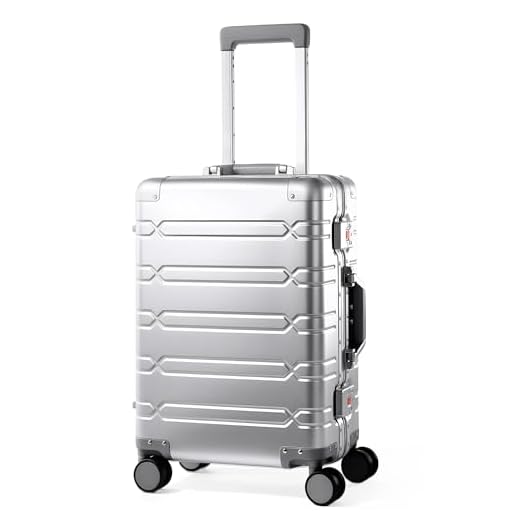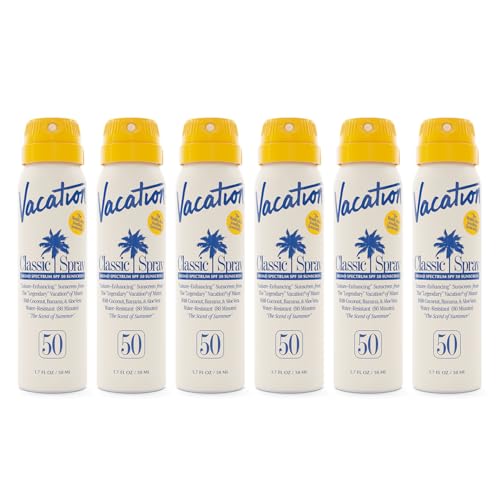



For those seeking lightweight travel solutions, examining the weight of aluminum cases is paramount. On average, a standard size of these cases weighs between 8 to 12 pounds, depending on the design and capacity. This weight range suggests they can be less convenient compared to alternatives made from polycarbonate or fabric, where weights can dip below 7 pounds.
However, considerations extend beyond sheer weight. The robustness of a metallic case often translates into enhanced durability, which can lead to fewer replacements over time. As travel can be unpredictable, the resilience of such cases provides peace of mind, potentially justifying the increased heft for many travelers.
When evaluating options, it’s advisable to consider the volume of belongings you intend to carry. A 20-inch metallic suitcase might suffice for short trips, while a larger 28-inch variant is more appropriate for longer travels. Weighing the benefits of sturdiness against portability is key in making the right choice for your specific needs.
Is Aluminum Luggage Heavy
Weight factors of these cases vary significantly, depending on design, size, and materials used. When comparing weight to other travel gear, it’s essential to consider how they balance durability and functionality.
Material Comparison
Many alternatives, like polycarbonate and softshell options, often tend to be lighter. Here’s a quick comparison of weights:
| Type | Average Weight (lbs) |
|---|---|
| Aluminum Case | 9-12 |
| Polycarbonate Suitcase | 5-8 |
| Softshell Bag | 3-6 |
Travel Considerations
While sturdiness is a significant aspect, travelers should assess whether the added weight aligns with their needs. If rugged protection is a priority, selecting a robust model may justify the heft. Always check weight limits set by airlines to prevent additional fees during travel.
Weight Comparison with Other Luggage Materials
When evaluating different travel gear options, it’s crucial to assess the weight of materials like polycarbonate and fabric. Typically, polycarbonate is lighter and often chosen by travelers seeking to minimize weight. This option tends to weigh approximately 20-30% less than its metal counterparts, providing ample space and durability without the bulk.
Fabric suitcases, such as those made from nylon or polyester, also provide a significant weight advantage. They can weigh up to 50% less than metal alternatives, making them easier to carry over longer distances. These materials often feature added flexibility and expandability, catering to varying travel needs.
When considering options, factor in that lighter gear generally allows for more packing capacity. An efficient approach to travel includes selecting gear that complements your adventure style, such as pairing your selection with products like the best beach chairs with umbrella to ensure convenience and comfort.
In summary, while metal variants provide robustness and security, polycarbonate and fabric options often offer superior weight practicality, enhancing your travel experience.
Factors Affecting the Weight of Aluminum Luggage
Consider the following aspects to understand how the mass of these travel cases is influenced:
- Material Thickness: Thicker panels increase durability but also add weight. Evaluate the thickness according to your travel needs.
- Frame Design: The structural integrity provided by the frame reduces the need for extra material, often leading to a lighter product without sacrificing strength.
- Interior Compartments: Additional pockets and organizational features can contribute to the overall weight. Choose layouts that maximize efficiency while minimizing excess weight.
- Finish and Coating: Treatments like anodizing or powder coating offer extra protection but may slightly increase weight. Assess if these benefits align with your travel habits.
- Manufacturer’s Innovations: New technologies focused on lightweight construction can significantly alter weight. Research brands that utilize advanced engineering to produce lighter alternatives.
Understanding these factors allows for informed decisions regarding selection for your next trip. Additionally, if you’re managing a local business, consider learning how can a google my business location can be verified for improved visibility and customer access.
Benefits of Choosing Aluminum Over Heavier Options
Opt for a material that offers unmatched durability and resilience against wear and tear. Unlike more cumbersome choices, this lightweight variant is less prone to dents and scratches, ensuring a longer lifespan.
Incorporating advanced technology in design, this alternative provides superior security features such as integrated locks and reinforced corners, enhancing safety for your belongings.
An additional advantage lies in its sleek aesthetic, which not only projects a modern look but also prioritizes functionality. The smooth surfaces allow for easy cleaning and maintenance, making it ideal for travelers who prioritize convenience.
When selecting travel gear, consider the environmental impact. This choice can be made from recycled materials, aligning with eco-friendly practices while maintaining exceptional strength.
Investing in this option can lead to significant savings over time, as the durability minimizes the need for replacements, making it a cost-effective solution for frequent travelers.
For practical users, the unique design often includes organizational compartments and easy-access pockets, enhancing the overall travel experience while keeping items secure and accessible.
How to Choose the Right Aluminum Luggage Size
Select a size based on your travel duration. For weekend getaways, opt for smaller cases. For longer trips, medium or large options provide ample space without exceeding airline restrictions.
Check airline guidelines. Many carriers have specific size limits for checked and carry-on items. Always verify these dimensions to avoid unexpected fees or the inconvenience of checking in your bag at the gate.
Consider your packing style. If you tend to overpack, a larger option with extra compartments can be beneficial. Conversely, if you are minimalist, a compact model may suffice.
Evaluate the purpose of your travels. Business trips may require a sleek, briefcase-style case, whereas vacationers might need larger, more casual designs to fit vacation essentials.
Account for the number of items you typically carry. If you often pack equipment or gear, choose a style with expandability or more internal organization features.
Lastly, think about the handling. Larger bags can be heavier and less maneuverable, so test for ease of movement and weight distribution before making a decision.
Impact of Weight on Travel Experience
Opting for lightweight gear significantly enhances your travel experience by allowing easier maneuverability and reducing physical strain. Here are key considerations regarding the weight factor:
Physical Comfort
Travelers benefit from less fatigue when carrying less weight. This is particularly advantageous during long walks through airports or train stations.
- Consider using lightweight straps and handles for additional comfort.
- Distributing weight evenly can alleviate pressure points on the body.
Mobility and Flexibility
Using lighter alternatives allows for swifter movement and adaptability during travel. This enables quicker check-ins and easier boarding.
- Less weight contributes to increased agility, essential for catching connecting flights.
- Easier to manage in crowded environments, such as buses and subways.
Choosing gear that aligns with your travel style and required durability can transform your experience, making it pleasant rather than burdensome. Less bulk leaves room for unexpected souvenirs and essential items acquired during your adventure. Prioritize ease of use and comfort when evaluating travel options to maximize your enjoyment and efficiency.
Real User Feedback on Luggage Weight
Users consistently highlight the balance between durability and heft when discussing their experiences with metal cases. Many find these cases notably sturdy and reliable, but some mention a noticeable weight that can impact maneuverability, especially on longer trips.
Feedback suggests that the specific model chosen greatly influences the overall feel. For instance, premium brands that utilize advanced materials seem to mitigate excess mass while maintaining structural integrity, leading to higher satisfaction among travelers.
Traveler Experiences
A frequent point of discussion is the ease of transport. Travelers state that while these cases can be bulkier than fabric or composite options, the wheels and handle design often play a vital role in usability. Users recommend selecting models with larger wheels for improved movement across various terrains.
Comparative Insights
Several reviewers provided comparisons to alternatives made from softer materials. Many reported a preference for hard-shell versions due to their protective qualities, which make them ideal for fragile contents. However, those prioritizing lightweight options may lean towards softer varieties for ease of carrying.
In summary, while user feedback indicates a potential trade-off in weight for additional security and durability, making informed choices based on model features and personal travel needs can enhance the overall experience.








